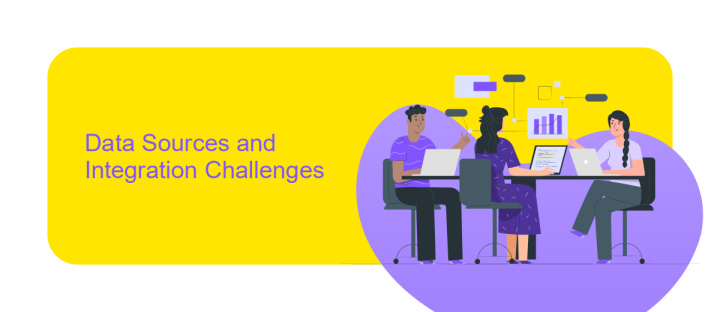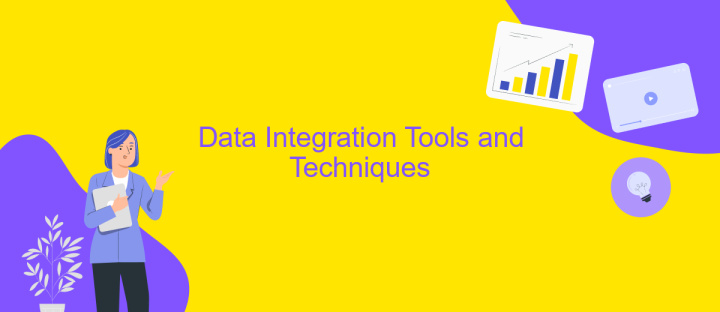Entertainment Business Data Integration
In today's fast-paced entertainment industry, data integration has become a crucial element for success. By seamlessly merging data from various sources, businesses can gain valuable insights, streamline operations, and enhance decision-making processes. This article explores the significance of data integration in the entertainment sector, highlighting its benefits and the innovative technologies driving this transformation.
Introduction
The entertainment industry is undergoing a significant transformation driven by the integration of data across various platforms. This shift is not only enhancing the way content is produced and distributed but also how it is consumed by audiences. By leveraging data analytics, companies can make informed decisions, optimize operations, and deliver personalized experiences to their customers.
- Improved content recommendation systems
- Enhanced audience targeting and segmentation
- Optimized marketing strategies
- Real-time performance tracking
These advancements are enabling businesses to stay competitive in a rapidly evolving market. As data continues to play a crucial role in shaping the future of entertainment, it becomes imperative for companies to adopt robust data integration strategies. This ensures they can harness the full potential of their data assets, driving growth and innovation in the industry.
Data Sources and Integration Challenges

Entertainment business data integration involves aggregating information from various sources such as ticket sales, streaming services, social media, and customer relationship management (CRM) systems. Each of these data sources has its own format, structure, and protocols, making the integration process complex. For instance, ticket sales data might be stored in a SQL database, while social media interactions are typically found in JSON format from APIs. Ensuring that all these disparate data sources communicate effectively is crucial for obtaining a comprehensive view of business performance.
One of the significant challenges in data integration is maintaining data accuracy and consistency across platforms. This is where services like ApiX-Drive come into play. ApiX-Drive simplifies the integration process by providing a user-friendly interface and pre-built connectors for various data sources. It automates data transfer and synchronization, reducing the risk of errors and saving valuable time. By leveraging such tools, entertainment businesses can streamline their data workflows, ensuring that all relevant information is readily accessible for decision-making and strategic planning.
Data Integration Tools and Techniques

In the entertainment business, data integration is crucial for consolidating diverse data sources into a unified system. This process enhances decision-making, streamlines operations, and provides comprehensive insights into audience behavior, content performance, and financial metrics. Effective data integration requires the use of specialized tools and techniques tailored to the unique needs of the entertainment industry.
- ETL (Extract, Transform, Load) Tools: These tools automate the extraction of data from various sources, transform it into a usable format, and load it into a central repository.
- API Integrations: APIs enable seamless data exchange between different software applications, facilitating real-time data synchronization.
- Data Warehousing: Data warehouses store large volumes of structured and unstructured data, making it easier to perform complex queries and analyses.
- Data Lakes: These repositories store raw data in its native format, allowing for flexible data processing and advanced analytics.
- Machine Learning Algorithms: These algorithms analyze integrated data to identify patterns, predict trends, and optimize content recommendations.
By leveraging these tools and techniques, entertainment businesses can achieve a holistic view of their operations, enhance audience engagement, and drive revenue growth. Implementing a robust data integration strategy is essential for staying competitive in a rapidly evolving digital landscape.
Data Analysis and Insights

Data analysis in the entertainment business is pivotal for understanding audience preferences and optimizing content delivery. By leveraging advanced analytics, companies can gain valuable insights into viewer behavior, enabling them to tailor their offerings to meet market demands. This process involves collecting and examining large datasets from various sources, including streaming platforms, social media, and ticket sales.
Insights derived from data analysis can drive strategic decisions, such as content creation, marketing strategies, and distribution channels. For instance, identifying trends in viewer engagement can help producers develop more appealing shows and movies.
- Audience segmentation: Understanding different viewer demographics.
- Content performance: Analyzing which types of content are most popular.
- Predictive analytics: Forecasting future trends and preferences.
- Revenue optimization: Identifying the most profitable distribution methods.
By integrating data analysis into their operations, entertainment businesses can stay ahead of the competition and cater to the evolving tastes of their audience. This not only enhances viewer satisfaction but also drives growth and profitability in an increasingly dynamic market.
- Automate the work of an online store or landing
- Empower through integration
- Don't spend money on programmers and integrators
- Save time by automating routine tasks
Conclusion
In conclusion, the integration of data within the entertainment business is a crucial step towards enhancing operational efficiency and driving informed decision-making. By consolidating disparate data sources, companies can gain a holistic view of their operations, audience preferences, and market trends. This comprehensive understanding allows for more targeted marketing strategies, improved content creation, and optimized resource allocation, ultimately leading to increased profitability and a competitive edge in the industry.
Utilizing services like ApiX-Drive can significantly streamline the process of data integration. ApiX-Drive offers a user-friendly platform that automates the connection between various applications and data sources, reducing the need for manual data handling and minimizing errors. By leveraging such tools, entertainment businesses can focus more on their core competencies while ensuring that their data-driven strategies are both accurate and efficient. The future of entertainment business data integration lies in the seamless, automated, and intelligent merging of information, paving the way for innovative and adaptive business practices.
FAQ
What is Entertainment Business Data Integration?
Why is data integration important in the entertainment industry?
How can I automate data integration for my entertainment business?
What types of data can be integrated in the entertainment industry?
What are the challenges of data integration in the entertainment business?
Routine tasks take a lot of time from employees? Do they burn out, do not have enough working day for the main duties and important things? Do you understand that the only way out of this situation in modern realities is automation? Try Apix-Drive for free and make sure that the online connector in 5 minutes of setting up integration will remove a significant part of the routine from your life and free up time for you and your employees.


